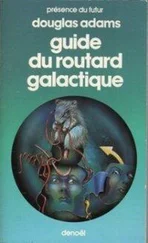Douglas Adams - The Salmon of Doubt
Здесь есть возможность читать онлайн «Douglas Adams - The Salmon of Doubt» весь текст электронной книги совершенно бесплатно (целиком полную версию без сокращений). В некоторых случаях можно слушать аудио, скачать через торрент в формате fb2 и присутствует краткое содержание. Жанр: Фантастика и фэнтези, на английском языке. Описание произведения, (предисловие) а так же отзывы посетителей доступны на портале библиотеки ЛибКат.
- Название:The Salmon of Doubt
- Автор:
- Жанр:
- Год:неизвестен
- ISBN:нет данных
- Рейтинг книги:4 / 5. Голосов: 1
-
Избранное:Добавить в избранное
- Отзывы:
-
Ваша оценка:
- 80
- 1
- 2
- 3
- 4
- 5
The Salmon of Doubt: краткое содержание, описание и аннотация
Предлагаем к чтению аннотацию, описание, краткое содержание или предисловие (зависит от того, что написал сам автор книги «The Salmon of Doubt»). Если вы не нашли необходимую информацию о книге — напишите в комментариях, мы постараемся отыскать её.
The Salmon of Doubt — читать онлайн бесплатно полную книгу (весь текст) целиком
Ниже представлен текст книги, разбитый по страницам. Система сохранения места последней прочитанной страницы, позволяет с удобством читать онлайн бесплатно книгу «The Salmon of Doubt», без необходимости каждый раз заново искать на чём Вы остановились. Поставьте закладку, и сможете в любой момент перейти на страницу, на которой закончили чтение.
Интервал:
Закладка:
“Yes?”
“I answered.”
“Dirk, old friend,” said Kate, “you need a rest.”
“I’ve had nothing but rest,” grumbled Dirk.
“In which case you need something to do.”
“Yes,” said Dirk. “But what?”
Kate sighed. “I can’t tell you what to do, Dirk. No one can ever tell you anything. You never believe anything unless you’ve worked it out for yourself.” “Hmmm,” said Dirk, opening his notebook again.
“Now that is an interesting one.”
“JOSH,” said a voice in a kind-of Swedish-Irish accent.
Dirk ignored it. He unloaded his small bag of shopping into bits of his badly disfigured kitchen. It was mostly frozen pizza, so it mostly went into his small freezer cabinet, which mostly filled with old, white, clenched things that he was now too frightened to try to identify.
“Jude,” said the Swedish-Irish voice.
“Don’t make it bad,” hummed Dirk to himself. He turned on the radio for the six-o’clock news. It featured mostly gloomy stuff. Pollution, disaster, civil war, famine, etc., and, just as an added bonus, speculation as to whether the Earth was going to be hit by a giant comet or not.
“Julian,” said the Swedish-Irish voice, tinnily. Dirk shook his head. Surely not.
More on the comet story: there was a wide range of views about precisely what was going to happen.
Some authorities said that it was going to hit Sheridan, Wyoming, on the seventeenth of June. NASA
scientists said that it would burn up in the upper atmosphere and not reach the surface. A team of Indian astronomers said that it would miss the Earth altogether by several million miles before going on to plunge into the sun. The British authorities said it would do whatever the Americans said it would do.
“Julio,” said the voice. No response.
Dirk missed the next thing the radio said because of the noise of his front wall flapping. His front wall was made of large, thick sheets of polythene these days, because of an incident a few weeks earlier when, in a radical departure from the sort of behaviour that Dirk’s neighbours liked to see, a Tornado jet fighter had exploded out of the front of Dirk’s house and then plunged screaming into Finsbury.
There was, of course, a perfectly logical explanation for this, and Dirk was tired of giving it. The reason that Dirk had had a Tornado jet fighter in his hallway was that he hadn’t known it was a Tornado jet fighter. Of course he hadn’t known it was a Tornado jet fighter. As far as he was concerned, it was merely a large and bad-tempered eagle that he had trapped in his hallway the same way anybody would to stop it dive-bombing him the whole time. That a large Tornado jet fighter had, for a brief while, taken on the shape of an eagle was on account of an unfortunate airborne encounter with the Thunder God, Thor, of legend, and ...
This was the part of the story where Dirk usually had to struggle a little to sustain his audience’s patient attention, which he would, if successful, further strain by explaining that the Thunder God, Thor, had then thought better of his fit of temper and decided to put things right by returning the Tornado to its proper shape. Unfortunately, Thor, being a god, had had his mind on higher or at least other things, and hadn’t called up, as any mere mortal might have done, to check if this was a convenient moment. He had just decreed it done and it was done, bang.
Devastation.
And also the insurance problem from hell. The insurance companies involved had all claimed that this was, by any reasonable standards, an act of God. But, Dirk had argued, which god? Britain was constitutionally a Christian monotheistic state, and therefore any “act of God” defined in a legal document must refer to the Anglican chap in the stained glass and not to some polytheistic thug from Norway. And so on.
“Justin,” intoned the little voice. There was no answering response. Dirk tipped his unopened bank statements on to the kitchen table, and stared at them with loathing. It seemed to him for a moment that the envelopes were vibrating slightly, and even that the whole of space and time was beginning to revolve slowly around them and get sucked into their event horizon, but he was probably imagining it.
“Karl.” Nothing. “Karel. Keir.” Nothing. Nothing.
Dirk made some coffee, taking the long route round his kitchen, in order to avoid coming too close to his bank statements, now that he had put them down. Viewed in a certain light, the entire structure of his adult life could be seen as a means of avoiding opening his bank statements. Someone else’s bank statements—now that was a different matter. He was rarely happier than when poring over someone else’s bank statements: he always found them to be rich in colour and narrative drive, particularly if he’d had to steam them open. But the prospect of opening his own gave him the screaming heebie-jeebies.
“Keith,” said the voice, hopefully, nasally. Nothing.
“Kelvin.” No.
Dirk poured his coffee as slowly as he could, for he realised that the time had finally come. He had to open the statements and learn the worst. He selected the largest knife he could find and advanced on them, theateningly. “Kendall.” Silence.
In the end he did it almost nonchalantly, with a sadistic little flick-slit movement. He quite enjoyed it, in fact, and even felt fashionably vicious. In a few seconds the four envelopes—his financial history of the last four months—were open. Dirk laid their contents out before him. “Kendrick.” Nothing.
“Kennedy.” The tinny little voice was beginning to get on Dirk’s nerves. He glanced at the corner of the room. Two mournful eyes looked at him in silent bewilderment.
As Dirk at last looked at the figures at the bottom of the last sheet of paper, a kind of swimmy feeling assailed him. He gasped sharply. The table began to bend and sway. He felt as if the hands of fate had started kneading his shoulders. He had imagined it was bad, in fact for the last few weeks he had imagined little else other than how bad it might be, but even in his worst imaginings he had no idea it might be this bad.
Clammy things happened in his throat. He could not possibly, possibly be over .22,000 overdrawn. He pushed his chair back from the kitchen table, and for a few moments just sat there, throbbing. .22,000 . .
.
The word “Kenneth” floated mockingly through the room. As he rapidly cast his mind back over what he could remember of his expenditures over the last few weeks—an ill-considered shirt here, a reckless bun there, a wild weekend in the Isle of Wight—he realised that he must be right. He could not possibly be .22,000 overdrawn.
There it was again. .22,347.43.
There must be some mistake. Some terrible, terrible mistake. The chances were, of course, that he had made it, and as he stared, trembling, at the paper he realised, quite suddenly, that he had.
He had been looking for a negative number and had therefore assumed that that was what he was looking at. In fact his account stood at .22,347.43. In credit. Credit ...
He’d never known such a thing. Didn’t even know what it looked like. Hadn’t recognised it. Slowly, carefully, almost as if the figures might fall off the page and get lost on the floor, he sifted through the sheets one by one to try to find out where on earth all this money had come from. “Kenny,” “Kentigern,”
and “Kermit” slipped by unheard.
It was immediately clear that it was regular amounts that had been coming in, once a week. There had been seven of them—so far. The most recent one had come in the Friday before last, which was as far as these statements went. The odd thing was that though the amounts were regular, they were untidy amounts, similar each week, but not exactly the same. The previous Friday’s payment was .3,267.34.
Читать дальшеИнтервал:
Закладка:
Похожие книги на «The Salmon of Doubt»
Представляем Вашему вниманию похожие книги на «The Salmon of Doubt» списком для выбора. Мы отобрали схожую по названию и смыслу литературу в надежде предоставить читателям больше вариантов отыскать новые, интересные, ещё непрочитанные произведения.
Обсуждение, отзывы о книге «The Salmon of Doubt» и просто собственные мнения читателей. Оставьте ваши комментарии, напишите, что Вы думаете о произведении, его смысле или главных героях. Укажите что конкретно понравилось, а что нет, и почему Вы так считаете.







